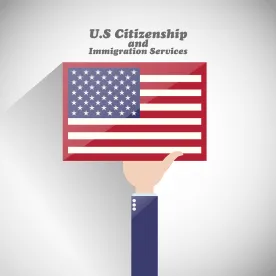Trump Administration Amends Presidential Proclamation That Temporarily Suspends New H-1B, H2B, J-1, and L-1 Visa and Travel from Abroad
On June 29, 2020, the Trump administration issued an amendment to Section 3(a)(ii) of Proclamation 10052 (“Proclamation”) to suspend and limit foreign nationals attempting to enter the United States in H-1B/H-2B/H-4, L-1/L-2, or J-1/J-2 employment-based nonimmigrant visa categories.
The original language in the Proclamation read as follows:
Sec. 3. Scope of Suspension and Limitation on Entry. (a) The suspension and limitation on entry pursuant to section 2 of this proclamation shall apply only to any alien who: … (ii) does not have a non-immigrant visa that is valid on the effective date of this proclamation; and… .
The language in the amendment says the following:
Section 1. Amendment. Section 3(a)(ii) is amended to read as follows: “(ii) does not have a nonimmigrant visa, of any of the classifications specified in section 2 of this proclamation and pursuant to which the alien is seeking entry, that is valid on the effective date of this proclamation; and[… .]”
The amendment clarifies that an individual must have a valid unexpired visa in one of the above-mentioned nonimmigrant categories before June 24, 2020, in order to enter the United States. This means that individuals who have valid visas in any other non-immigrant categories (such as F, B, or O visas) cannot apply for a visa in the above-mentioned categories on or after June 24, 2020.
This small variance may seem minute, but the earlier version of the Proclamation inferred that any foreign national who had never previously received H, L, or J visa status could apply for such status on or after June 24, 2020. This amendment terminates that loophole.
The amendment does not alter the Proclamation with respect to travel for Canadian citizens. Except for E-1 and E-2 visas, Canadians are exempt from applying for visas at U.S. embassies or consulates. Therefore, the Proclamation does not apply to Canadian citizens, and Canadians may continue to seek to enter the United States in H or L status based on new approval notices, or J-1 status with a valid DS-2019.
USCIS Extends Flexibility for Responding to USCIS Requests
In response to the ongoing COVID-19 pandemic, U.S. Citizenship and Immigration Services (“USCIS”) announced that it will continue to provide special flexibilities originally granted on March 30, 2020, to allow additional time to respond to the following USCIS requests:
-
-
Requests for Evidence;
-
Continuations to Request Evidence (N-14);
-
Notices of Intent to Deny;
-
Notices of Intent to Revoke;
-
Notices of Intent to Rescind and Notices of Intent to Terminate regional investment centers;
-
Filing date requirements for Form N-336, Request for a Hearing on a Decision in Naturalization Proceedings (Under Section 336 of the INA); or
-
Filing date requirements for Form I-290B, Notice of Appeal or Motion.
-
The additional time for responding to agency requests applies only to those requests issued between March 1 and September 11, 2020.
USCIS will continue to give petitioners and applicants an additional 60 calendar days from the due date to respond to the above requests and notices before taking any action. Further, USCIS will consider Form N-336 or Form I-290B received up to 60 calendar days from the date of the decision before the agency will finalize any action on those matters.
Due to Budgetary Limitations, USCIS Has Furloughed Many of Its Employees
Even though USCIS receives much of its funding through filing fees, the agency is feeling the effects of the current economic crisis caused by COVID-19. The USCIS will furlough more than 13,000 members of its workforce starting in July. USCIS reports that there has been a dramatic drop in the number of cases received by the agency due to COVID-19, triggering a need for furlough. It is expected that this furloughing could cause longer delays in the adjudication of all types of petitions and applications filed with USCIS, from employment- to family-based filings.
OFLC Publishes New Wage Data Effective from July 1, 2020
The Office of Foreign Labor Certifications (“OFLC”) of the U.S. Department of Labor (“DOL”) published the latest prevailing wage data from the Occupational Employment Survey (“OES”) as generated by the Bureau of Labor Statistics for July 1, 2020, through June 30, 2021. The OES wage data is used as the main source to determine prevailing wages for H-1B and H-2 work authorizations, as well as for filings for the Program Electronic Review Management (“PERM”) Labor Certification with the DOL. Any new H-1B, H-2, or PERM Labor Certifications to be filed on or after July 1, 2020, may require updated OES wage information.




 />i
/>i

